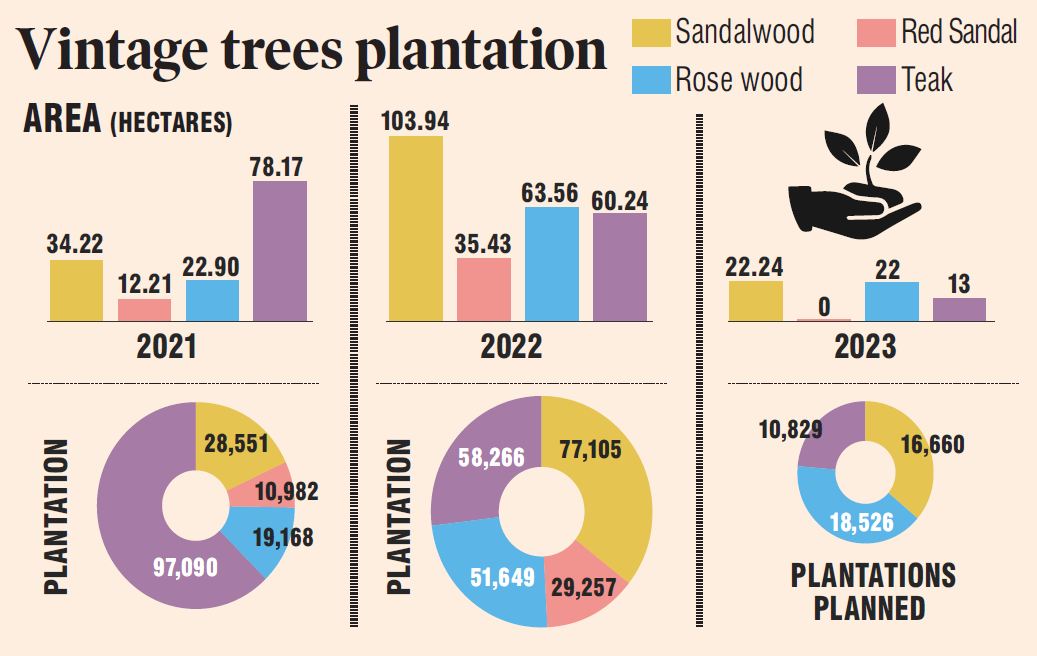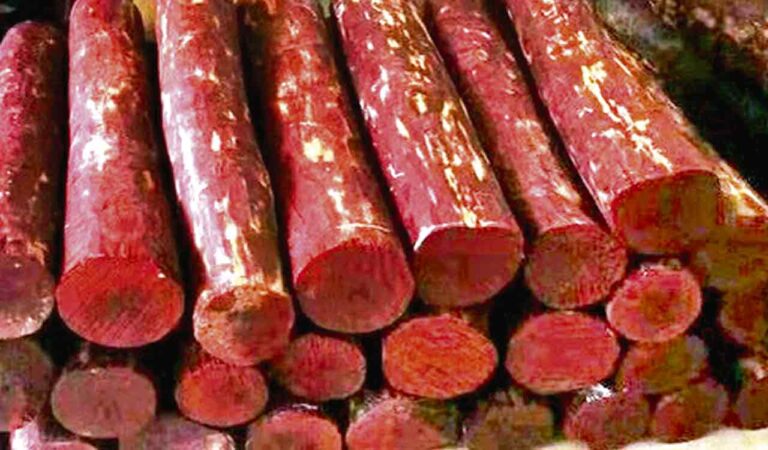Microchips are planned to be installed on 100 trees in Indira Park, Zoo and Dulapally Forest Academy under a pilot project
Release Date – 08:00 AM, Thu – 22 June 23

Hyderabad: With incidents of unauthorized logging of sandalwood and rosewood increasing, the Telangana Forest Development Corporation (TSFDC) is planning to install microchips on trees to protect them and ensure the correct number of trees.
In a pilot project, microchips are planned to be installed on 100 trees in Indira Park, Zoo and Dulapally Forest Academy. There have been several incidents of unauthorized felling of sandalwood trees in Indira Park and other parts of the city. In early February this year, nine trees were felled and their trunks stolen from the park. This is not an isolated case and such cases have been reported in the past.
Since TSFDC is now extensively planting sandalwood, rosewood, rosewood and other high-value trees across the state, in addition to maintaining appropriate tree populations, officials are now taking steps to protect these trees.
“We are negotiating with the Bangalore Institute of Wood Science and Technology (IWST) to execute the project. They have developed this microchip technology that will send an alarm in case of a theft,” said G Chandrashekhar Reddy, vice-chairman and managing director, TSFDC .
Explaining the technology, he said microchips would be implanted in trees. When a violator tries to cut down a tree, an alert is triggered on a smartphone with police and forestry department officials due to vibrations. Within minutes, officials can arrive on the scene and apprehend violators, he said.
The technique has been used in Bangalore and has proven to be effective. A pilot project to implant microchips in 100 trees could cost up to 3 lakh rupees and if all goes according to plan, the project would be launched within months, he said.
“As TSFDC is extensively planting sandalwood, rosewood, rosewood and other high value trees, this technology will come in handy to ensure the protection of the trees,” said Chandrashekhar Reddy.
For the past few years, TSFDC has been replacing mature eucalyptus plantations within the limits of the proposed regional loop with sandalwood, rosewood, and other species. The idea is to generate more revenue for the company.
For nearly forty years, eucalyptus have grown on the same soil in rotation after each crop cycle. This work depletes the soil, and efforts must be made to restore soil health. Another best part, he added, is the intermediate plantation of custard and other varieties that can generate income immediately, as it takes a long time for sandalwood or rosewood to grow.

